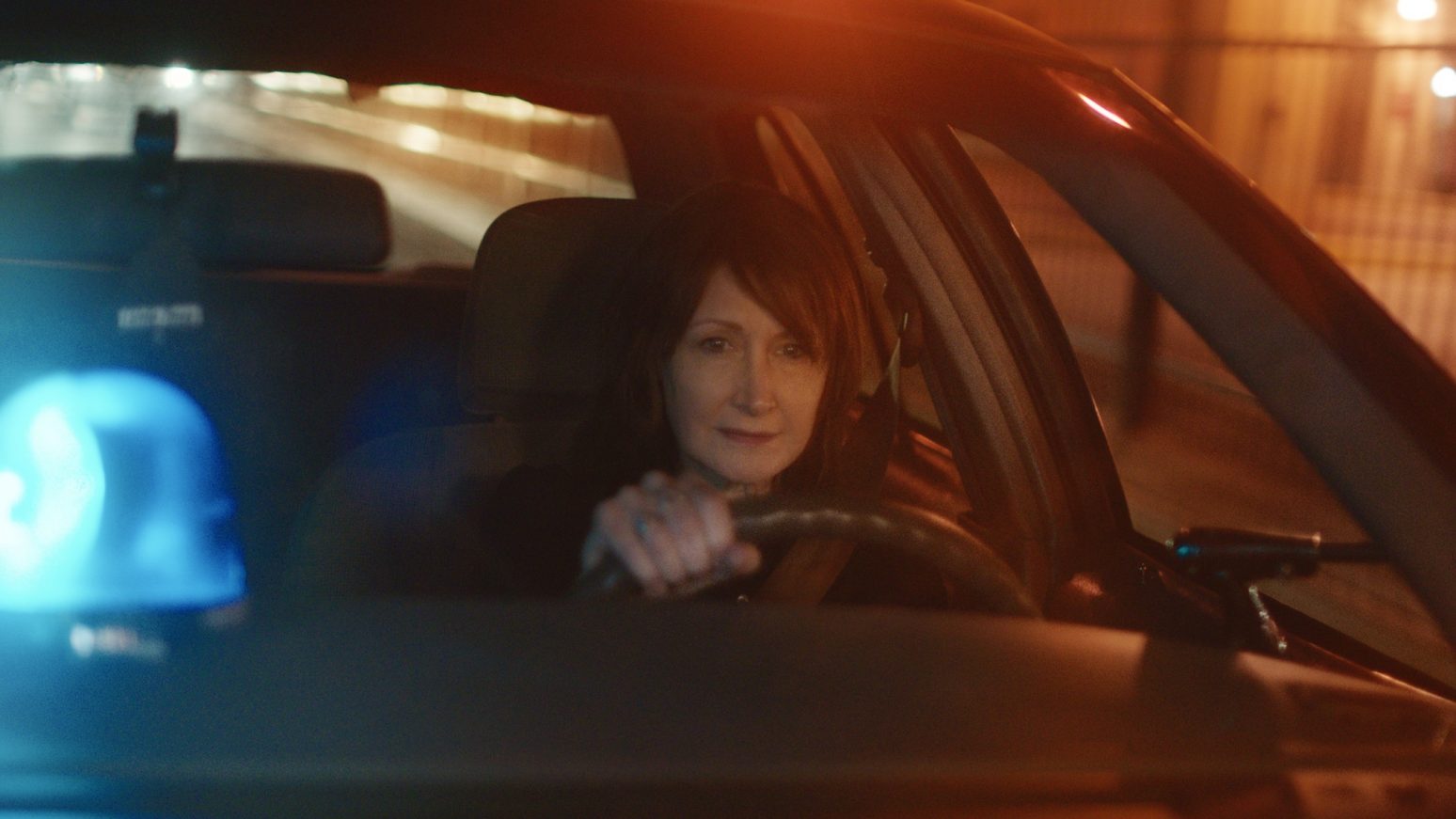
Dir.: Carol Morley; Cast: Patricia Clarkson, Mamie Gummer. Toby Jones, Jonathan Majors, James Caan, Jackie Weaver; US/UK 2018, 110 min.
Carol Morley (Dreams of a Life) is a British auteur who brings so much more to her films that just the narrative. Her screen version of Martin Amis’ novel Night Train is a genre hybrid– noir in this case – and existentialism. Out of Blue is as enigmatic as its title and New Orleans is the shadowy setting where detective Mike Hoolihan (Patricia Clarkson) investigates the murder of astrophysicist Jennifer Rockwell (Gummer).
Rockwell is found dead in a planetarium where she’d given a speech the day before about Black Holes. Early clues lead to two main-suspects: Ian Strammi (Toby Jones) manager of the site, and Duncan Reynold (Majors), Rockwell’s lover and co-worker. But Hoolihan feels instinctively that the solution to the crime will lead her back into the past where Space will offer clues. A recovering alcoholic with a captivating cat (who steals many a scene) Mike nevertheless loses it completely when cornered by her own past, and performs a drunken semi-striptease on a bar table. Rockwell’s parents are also involved: Colonel Tom (Caan) – who may or may not be the suspect of a past murder spree – and her mother Miriam (Weaver), who has her own dark guilt complex, are not helping Hoolihan, neither are Rockwell’s twin brothers. When the tragedy unravels, more questions emerge, and even physical identities start to look questionable: as Jennifer says in her final lecture “our nose and our hands may not be from the same galaxy”.
The film’s main characters’ identities seem to emanate from a different past, and nothing fits any more. Out of Blue is very much Nicolas Roeg territory: his son Luc is also a producer. Morley’s narrative leads gradually leads us ‘out of this world’, where Rockwell felt much more at home than on this planet – never mind her rather dysfunctional family set-up. And Hoolihan herself is hiding behind her policeman’s (sic) mask, denying both gender and past. DoP Conrad W. Hall’s images play on tones of the colour blue: we race through the film like the night train of Martin Amis’ novel (on which it is loosely based): from the night sky to the cream receptacle found at the crime scene, and the murky metallic-grey of crimes past, everything leads to the indigo blue of cosmic Black Holes.
Morley is clearly interested in the who-done-it, but she also asks questions about human nature; and all her protagonists have something significant to hide. And she never lets them get away with it – the raison d’être of their life (or death) is always more important than the circumstances of the discoveries. To paraphrase the feature title: Blue is the new Noir. The director never gives in or compromises: the existential ‘why’ is her reason for filmmaking, the result may not be to everyone’s taste, but it satisfies an audience hungry for answers outside our immediate Universe. AS
IN ARTHOUSE CINEMAS FROM 29 MARCH 2019